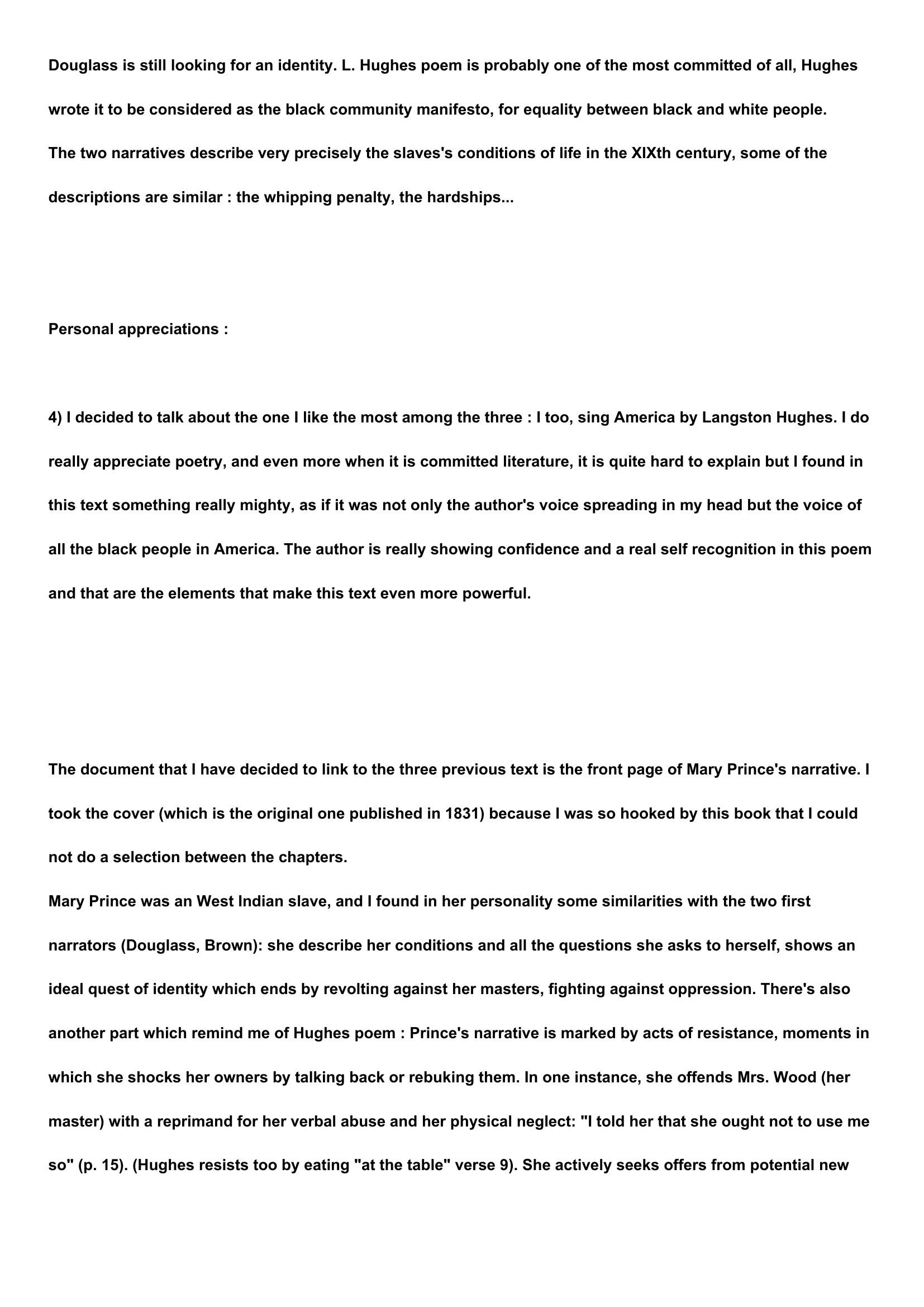Dossier littérature anglaise : Le je et le jeu de l'écrivain
Publié le 28/11/2012

Extrait du document
«
Douglass is still looking for an identity.
L.
Hughes poem is probably one of the most committed of all, Hughes
wrote it to be considered as the black community manifesto, for equality between black and white people.
The two narratives describe very precisely the slaves's conditions of life in the XIXth century, some of the
descriptions are similar : the whipping penalty, the hardships...
Personal appreciations :
4) I decided to talk about the one I like the most among the three : I too, sing America by Langston Hughes.
I do
really appreciate poetry, and even more when it is committed literature, it is quite hard to explain but I found in
this text something really mighty, as if it was not only the author's voice spreading in my head but the voice of
all the black people in America.
The author is really showing confidence and a real self recognition in this poem
and that are the elements that make this text even more powerful.
The document that I have decided to link to the three previous text is the front page of Mary Prince's narrative.
I
took the cover (which is the original one published in 1831) because I was so hooked by this book that I could
not do a selection between the chapters.
Mary Prince was an West Indian slave, and I found in her personality some similarities with the two first
narrators (Douglass, Brown): she describe her conditions and all the questions she asks to herself, shows an
ideal quest of identity which ends by revolting against her masters, fighting against oppression.
There's also
another part which remind me of Hughes poem : Prince's narrative is marked by acts of resistance, moments in
which she shocks her owners by talking back or rebuking them.
In one instance, she offends Mrs.
Wood (her
master) with a reprimand for her verbal abuse and her physical neglect: "I told her that she ought not to use me
so" (p.
15).
(Hughes resists too by eating "at the table" verse 9).
She actively seeks offers from potential new.
»
↓↓↓ APERÇU DU DOCUMENT ↓↓↓
Liens utiles
- Un écrivain contemporain écrit : «Notre Société [...] a peu à peu insinué dans le cerveau de nos élèves l'idée que la littérature ne tendait qu'à poser des problèmes actuels, comme les "Dossiers de l'écran", ne servirait qu'à transmettre des informations profitables comme la défense du consommateur. Un bon livre, en somme, serait un livre utile, centré sur une question du jour. Un bon livre serait un bon dossier, un bon bilan.» (Le Monde de l'Éducation, octobre 1981)
- pourquoi la littérature s’est-elle passionnée pour les récits de faits divers ? Qu’apporte le point de vue de l’écrivain ?
- pourquoi la littérature s’est-elle passionnée pour les récits de faits divers ? Qu’apporte le point de vue de l’écrivain ?
- Quel Rôle pour l’Écrivain (et la Littérature) Face au Souvenir des années de plomb?
- Yeats William Butler, 1865-1939, né à Sandymount (Dublin), écrivain irlandais de langue anglaise.


